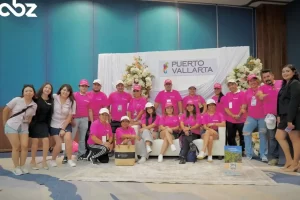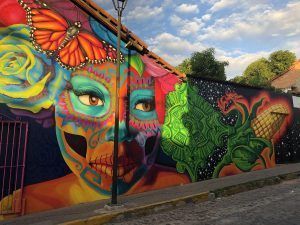- Nestled between the majesty of the Sierra Madre and the deep blue of the Pacific, Puerto Vallarta not only captivates with its idyllic landscapes, but has also become a model of sustainability in the tourism sector.
Puerto Vallarta hotels are at the forefront of the sustainable practicesSome have adopted solar energy systems that significantly reduce their carbon footprint, while many others have implemented wastewater treatment plants, which are used to irrigate the resorts' gardens, where native flora can be appreciated, carefully cultivated to attract pollinators and encourage local biodiversity.
The southern hotel zone of Puerto Vallarta - nestled where the Sierra Madre meets the sea - has a series of Boutique hotels that promote sustainability, including Casitas Maraika, Verana, El Grullo Naturista, Hotelito Mío, Santuario Yelapa and Xinalani in Quimixto, which was recently recognized with 3 Michelin Keys for its unique accommodation proposal oriented towards meditation, yoga, conscious eating and, in general, disconnection from worldly distractions.
One of the most notable initiatives in the region is the sea turtle conservationSome hotels—such as Marriott Puerto Vallarta Resort & Spa, Hyatt Ziva, and Hotel Rosita—organize activities where guests and locals come together to protect the nests and free the hatchlings, doing their part to prevent the extinction of these legendary reptiles and creating a sense of community. This experience not only leaves an impression on those who experience it, but also gives visitors a deeper connection with their environment.
Another relevant aspect that distinguishes Puerto Vallarta is having Blue Flag certification on several of its beaches. The Blue Flag is an international recognition awarded to beaches and marinas that meet standards of excellence in water quality, management and environmental education to sustainably preserve coasts, oceans and bodies of water, in addition to having strict control of verification and monitoring of these.
In terms of sustainable construction and development, the new airport terminal 2 The two-story project, to be completed in 2026, avoids the destruction of the jungle and uses technologies to take advantage of the environment, such as water care and treatment, as well as collecting rainwater to make the air conditioning system more efficient. The building will have LEED Gold certification (Leadership in Energy and Environmental Design), one of the highest standards in green construction and alternative energy. By 2050, the Puerto Vallarta International Airport is expected to have Net Zero standards, meaning that it is on track to reduce polluting emissions to zero.
On the other hand, at the International Tourism Fair held in Madrid, Spain in 2022, the Canopy River ecotourism project - from the El Jorullo ejido in Puerto Vallarta - received the Excellence Award in the Sustainability category, for its work in favor of the community through sustainable projects that provide opportunities for future generations.
In addition to the above, Puerto Vallarta is one of the few tourist destinations in the world that has a Protected Natural Area. The “El Salado” Estuary is located within the city and - like all mangroves - is of vital importance to the ecosystem, since the marine food chain begins there. 99 species of birds, 46 species of plants, 10 species of mammals and 29 species of amphibians and reptiles have been detected there, which is why it was declared a protected natural area in 2000. Protected Natural Area (ANP) under the category of ecological conservation zone. The Government of Jalisco, as part of its commitment to the conservation of natural areas, decreed in 2020 the expansion of the El Salado polygon, from 168 to 208.2 hectares.
Gastronomy has also taken a sustainable turn. Many restaurants within the hotels prioritize the use of local (zero kilometer) and seasonal ingredients, supporting farmers in the region and offering fresh and delicious dishes that reflect the cultural richness of Mexico. Thus, each bite becomes a celebration of the land and its products.
Puerto Vallarta stands as a destination where tourism and nature can coexist harmoniously. With its commitment to sustainability, it not only protects its natural environment, but also invites travelers to be part of this transformation, making each visit a conscious and memorable experience.




